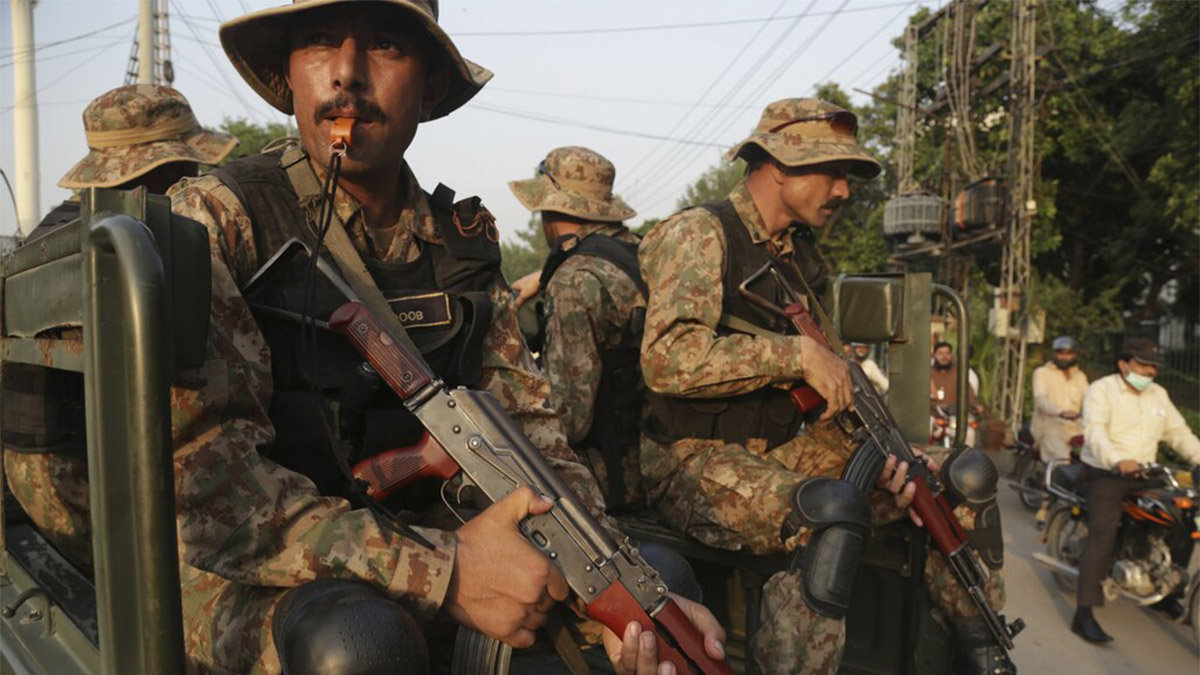Pakistan’s stance on terrorism has often drawn attention worldwide. Its leaders regularly portray the country as a victim of terrorism, but its actions and evidence reveal a more complicated and contradictory role. Indian Army Chief General Upendra Dwivedi has referred to Pakistan as the “epicentre” of terrorism emphasising its role in stirring unrest in neighbouring India. Meanwhile, Pakistan’s military leaders project a strong commitment to fighting terrorism within their own borders.
‘Epicentre’ of terrorism
India has consistently exposed Pakistan for supporting and harbouring terrorist activities, especially in Jammu and Kashmir. General Dwivedi’s statements on Monday provide clear evidence of this involvement as 80 per cent of the terrorists killed in the region are of Pakistani origin. This figure highlights Pakistan’s active role in facilitating cross-border infiltration despite India’s ongoing counterterrorism efforts.
The shift in Jammu and Kashmir from “terrorism to tourism” reflects India’s successful measures to restore normalcy. However, this progress is repeatedly threatened by Pakistan’s continued support for extremist groups.
Infiltration attempts across the Line of Control remain a constant issue with Pakistani-origin terrorists targeting peace in areas in North Kashmir and the Doda-Kishtwar belt. These actions stand in stark contrast to Pakistan’s public claims of promoting peace and stability in South Asia.
Pakistan’s internal security dilemma
Pakistan has been struggling with increasing violent attacks since the Taliban took control of Afghanistan in 2021, especially in the border provinces of Khyber Pakhtunkhwa (KP) and Balochistan. In 2024, the country saw its deadliest year in a decade, with at least 685 deaths and 444 terror attacks, according to the CRSS Annual Security Report 2024 by the Centre for Security and Strategic Studies.
Impact Shorts
More ShortsThe total number of fatalities, including civilians and security forces, was 1,612, which made up more than 63 per cent of the total deaths. This is a 73 per cent increase compared to the 934 outlaws killed. The total number of fatalities in 2024 was 2,546 with 2,267 others injured in terror attacks and counter-terror operations.
KP faced the highest toll with 1,616 deaths, followed by Balochistan with 782 deaths. November was the deadliest month and the overall fatalities in 2024 were more than 66 per cent higher than in 2023. On average, nearly seven people died each day. The violence was a major blow to Pakistan’s security in 2024.
Despite these challenges, Pakistan’s leadership continues to assert that its military and law enforcement agencies are successfully combating terrorism. While Chief of Army Staff General Syed Asim Munir sought to draw attention to the substantial efforts to dismantle terror networks in Peshawar on Monday, these claims however stand in stark contrast to reports of increasing fatalities, civilian casualties and the enhanced operational capabilities of terrorist organisations.
Afghan conundrum and its fallout
Pakistan’s relationship with Afghanistan adds to the challenges it faces in countering terrorism. The Taliban’s return to power in Afghanistan in 2021 has deeply affected Pakistan’s security. The open border between the two countries has enabled the Tehreek-e-Taliban Pakistan (TTP) to reorganise and carry out deadly attacks within Pakistan, especially in KP and Balochistan.
Contradiction in counterterrorism narratives
Pakistan’s approach to terrorism is full of contradictions. Internationally, it portrays itself as a victim of terrorism to gain sympathy and financial aid. Domestically, its leaders claim success against terror groups. However, its secret support for groups targeting India and Afghanistan tells a different story.
This double standard is clear in the conflicting statements of its leaders. While the military promises to eliminate terrorism, evidence shows continued support for certain extremist groups. This hypocrisy damages Pakistan’s credibility and raises doubts about its commitment to fighting terrorism fully.
These actions have serious effects on regional stability, especially in South Asia. Pakistan’s support for cross-border terrorism in Jammu and Kashmir blocks efforts to build peace and dialogue with India. At the same time, its failure to tackle the rising threat of the Tehreek-e-Taliban Pakistan (TTP) creates instability that spreads beyond its borders.
Pakistan’s worsening security situation also threatens its economic recovery. Ongoing violence scares away foreign investors and puts development projects at risk increasing its isolation globally. The political and economic instability further weakens Pakistan’s future and adds to public dissatisfaction.
Role of international pressure
The international community has a vital role in addressing Pakistan’s duplicity. Global organisations and powerful nations must hold Pakistan accountable for its actions while also supporting its genuine efforts to fight terrorism.
India’s diplomatic efforts to expose Pakistan’s role in supporting terrorism have been key in shaping global opinion. By presenting evidence of cross-border infiltration and the involvement of terrorists from Pakistan, India has strengthened its case against Pakistan’s hypocrisy. Until Pakistan rebuilds trust with neighbours, especially India and Afghanistan, the country is unlikely to have long-term stability.
While the country faces serious internal security challenges, its continued support for cross-border terrorism reflects a deeper strategic contradiction. Until Pakistan eliminates its dual behaviour, its hypocrisy is likely to remain a persistent obstacle to regional peace and development.
)